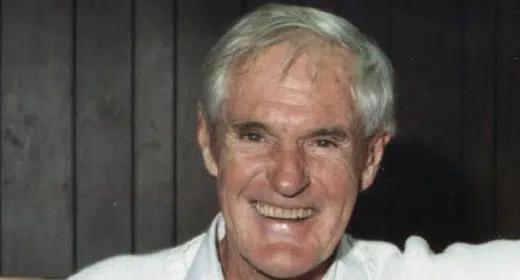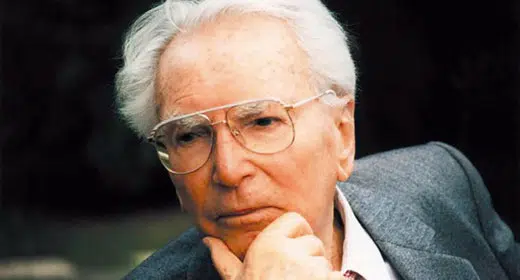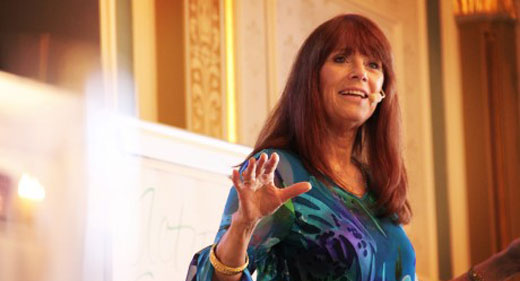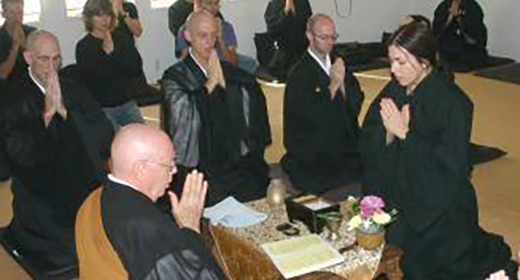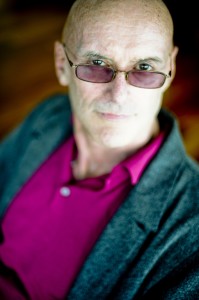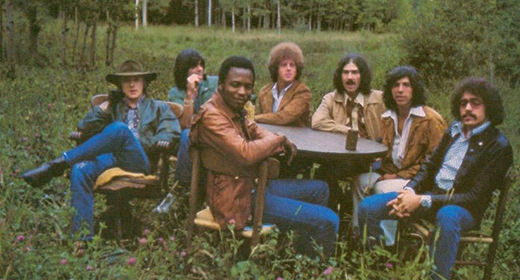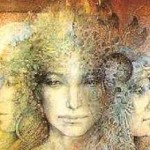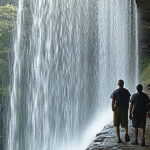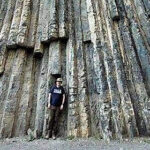by Vijay Rana: Vijay Rana interviews Ken Wilber, author of ‘The Future of Spirituality’…
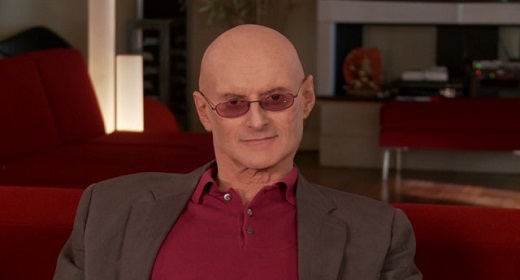
The Future of Spirituality touches on all those issues, and points to ways that we can incorporate these insights in our daily lives, much to our overall advantage, I do believe.
Ken Wilber is one of the most influential and widely read American philosophers of our time. His books have been translated into more than 20 languages and include Integral Spirituality, Grace and Grit, A Brief History of Everything, The Simple Feeling of Being, and many others.
Vijay Rana is a founding member of The London Integral Circle. He is an integral psychotherapist and bodyworker specialising in treating trauma. www.trauma-healing.co.uk
Vijay: Who is this program aimed at? Would listeners need to be familiar with your work in order to understand it?
Ken: Hi Vijay. Let me first say what a pleasure it is being here with you and your readers. It’s a real honor.
This series is for virtually any individual seriously interested in spirituality—including atheists, who are often behind the curve of modern research into spirituality and dismiss all of it, thinking of nothing but the traditional, mythic, white-haired gentleman in the sky—and stick to a purely scientific versus religious view. But modern developmental research shows that each major stage of development—and there are at least 6 or 7 of them—has both a form of scientific thinking and a form of religious or spiritual thinking. It’s not that there is higher developed science and lower developed religion, but higher developed science and religion and lower developed science and religion. In other words, there is not only a cognitive intelligence but also a spiritual intelligence. And too many of us don’t take advantage of our innate and powerful spiritual intelligence simply because we don’t know that research shows there are numerous higher levels of spiritual intelligence than just the mythic! To give a simple example, there are magical science and spirituality, mythic science and spirituality, rational science and spirituality, pluralistic science and spirituality, and integral science and spirituality—or, in short, traditional to modern to postmodern to integral versions, and while most people recognize the higher levels of science, few recognize the higher levels of spirituality. You can’t make use of what you don’t know is there.
Vijay: One of the things you talk about is how the world’s major religions confuse mythic symbolism, e.g. Moses parted the Red Sea, Jesus rose from the dead etc. with concretereality. This ‘concrete-literal’ interpretation of archaic religious story telling creates a cultural confusion that no one seems to be highlighting. Could this fundamental misunderstanding be explored and pushed more into the mainstream, and not just the integral circuit, in order to avoid the familiar polarisation of Dawkins vs. religious leaders? How might you – or other authors – take steps to achieve this?
Ken: Research—such as that of James Fowler—shows that that confusion that you mention—mythic symbols for concreterealities—is common at the early, magic and mythic levels of development, but drops away in the higher stages of spiritual intelligence, where emphasis shifts from stories and narratives to direct, immediate experience (of being one with all Nature, for example, or one with the Ground of Being). In these higher states, the individual transcends the separate-self sense and finds instead what the Sufis call “the Supreme Identity”—namely, the identity of the self with Spirit. And further, this Spirit is understood to have at least two dimensions—a formless state of infinite Emptiness, and a manifest state of finite Form (or the entire manifest universe). And the manifest universe, as Spirit-in-action, is evolving, including the forms of religion itself (from traditional forms to modern forms to postmodern forms to integral forms and higher). Thus, this higher spirituality is fully compatible with a higher science. The arguments of intellectuals like Dawkins are completely undercut when you realize that they only apply to the lower levels of religion, not to the higher levels, which are fully compatible with science.
The only way to achieve this type of understanding reaching a larger, conventional audience is to keep talking about it, starting exactly with good magazines such as yours.
Vijay: During these sessions, you discuss two relatively independent interior developmental aspects: states and stages of consciousness. So a Zen master could train and develop in states of consciousness – ultimately becoming ‘enlightened’ – and yet may simultaneously view reality from a low developmental stage because their awakening doesn’t guarantee stage development, e.g. he’s enlightened (non-dual state) and homophobic (mythic-traditional stage). Something I often think about is that while it may be a huge achievement to recognise the true nature of reality, if you had to choose one aspect to be developed, surely pushing consciousness through to higher stages would be more important than states? I understand that having them both developed is ideal, but I would love to hear your take on this.
Ken: This is definitely a head-scratcher. Both of them have so many incredibly important advantages, it’s really hard to choose one. Stages are how we grow up; states are how we wake up. And as important as states (and the whole notion of Awakening or Enlightenment) is, the example you bring up is crucial—you can move through states, all the way to ultimate Nonduality, and still be stuck in some fairly low stages. We all know mystics that are incredibly deep and yet also very narrow-minded. Studies into stages of moral development show that they move from egocentric (what’s right is what I say is right) to ethnocentric (what’s right is what my group, tribe, nation says is right) to worldcentric (what’s right is what is fair for all people, regardless of race, color, sex, or creed), to kosmocentric (including all sentient beings). You can be at any of those stages and nonetheless develop a oneness with everything in the world at that stage. But if that stage is, say, mythic-literal, it has an ethnocentric orientation (“the chosen peoples”), and if you’re not one of the chosen group, you are destined for hell—and in some cases, it’s even okay to kill “nonbelievers,” because they’re heathens without a soul. Killing infidels is a career promotion for mythic fundamentalists. Jihad or “holy war” becomes one’s major duty. Mystical experiences of oneness only deepen the feeling of the stage you’re at. And this, of course, is a disaster. This is why, with all the spiritual experiences that ancient traditional cultures had, they also had—with virtually no exceptions—slavery, torture, were mostly patriarchal and sexist and xenophobic. People have often wondered why all the old-time “really religious” cultures were also some of the most utterly barbaric. It’s because of having access to some very high states but not very high stages (hence the caste system, slavery, sexism, etc.).
On the other hand, the modern West—which has outlawed slavery, has laws protecting individual rights, representative forms of democracy, introduced civil rights to all its citizens, began a feminist movement, and so on, all of which are incredibly valuable—has absolutely no idea of Awakening or Enlightenment. That means that the Awakened state, held by the majority of subtle thinkers the world over, to be the summum bonum, the highest good of humans, is almost completely unavailable to most Westerners. The state of enlightened liberation that would put an end to suffering, angst, depression, and misery for a human being—not to mention introducing one to Ultimate Reality itself—is simply not known or recognized in most Western cultures. Higher stages, few if any states.
So I guess I would split the difference. Up until one gains at least a worldcentric (non-ethnocentric) stage of development, stages are the most important. Once one has reached worldcentric, then states—leading to Waking Up—become the most important.
If the Buddha, Saint Theresa, or an enlightened shaman walked into the room today, would they find themselves in need of some serious spiritual catching up to do? The answer, says Ken Wilber, is yes.
Vijay: Is it possible to create conditions for adults which foster stage development? How would you suggest this ‘stage training’ might be done?
Ken: Most developmentalists maintain that is a matter of what Robert Kegan of Harvard calls “challenge and support.” Namely, you challenge the person’s present stage of development (in education, you do this by introducing, for example, moral dilemmas that cannot be solved at a lower stage of development, only at higher ones), and then you support the responses that happen to come from a higher level. It is only as a person continues to experience the inadequacies and contradictions of the stage that they’re at, that they will let go of it and embrace a larger, deeper, wider stage of development—egocentric to ethnocentric to worldcentric to kosmocentric.
Vijay: You mention that underdeveloped spirituality is devastating to humanity. In my work as a therapist specialising in sexual trauma I see this devastation on a daily basis. Humanity’s sexual behaviour is going badly wrong somewhere. Cross-culturally incest, rape and sexual abuse are common place; every two minutes someone is sexually assaulted in America (RAINN 2013). If abuse occurs during the formative years, the effects are often crippling to an individual’s esteem and later development. A question I have often wanted to ask you is this: how can we as a species move beyond our distorted and abusive sexual behaviours?
Ken: That is a classic example of how important the development of human consciousness is. An egocentric person thinks that whatever is right is simply whatever he wants—and he will take out his impulsive gratification on whatever comes his way (money, power, sex, you name it). The majority of criminal behaviour occurs at egocentric levels. But ethnocentric is not much better, and in some cases—particularly on a larger scale—become devastatingly catastrophic, such as ethnic cleansing and the Holocaust. Ethnocentric thinks that what is right is what their primary group says, and if the primary group happens to be, say, a gang, then anybody outside the gang is open for rape or sexual assault. And, by the way, over 70% of the world’s population is at ethnocentric or lower stages.
Part of this problem, ironically, is that the pluralism of the postmodern world—which maintains that there are no universal standards of anything—has contributed to this moral collapse, actually dissuading people from taking up a worldcentric stance (which treats all people fairly regardless of race, color, sex, or creed). Childhood abuse often fixates a person at the early level where the abuse occurred (which is almost always egocentric or ethnocentric), and thus they are quite likely—or certainly more open to—becoming abusers themselves. This is an enormous problem, and is directly related, in many ways, to our lack of widespread cultural understanding of the major stages of development. As noted, the vast majority of individuals in our criminal system are there (if not because of politics or prejudice) because they are at an egocentric or ethnocentric stage of development. This makes it all the sadder, because in a certain sense, it’s not directly their fault—an individual can only act from the stage that they have.
Vijay: When I’ve personally checked out spiritual teachers and their communities, I find the same recurrent themes: the absent father projection onto a male guru, sexual misconduct, a lack of ability to engage with life or to authentically face and process emotional pain. How do you see the future of contemporary spiritual community? Is it possible to create a sangha (community) that is healthy?
Ken: Yes, those are real problems, and they stem from a lack of understanding and implementing stages, and/or states, and/or shadow work. There are very few communities, spiritual or otherwise, that understand stages AND states AND the shadow (or the personal unconscious). Usually, most New Age communities have a fairly good development of states, but poor stage-development and little shadow understanding—and problems with the last two (poor stage-development and shadow issues) are what drew them to the community in the first place, with exactly all the problems you note.
Shadow issues are another area (along with states and stages) that few religions really know anything about. And often, if I have a personal emotional problem (a “neurosis”), most religions will interpret it as evidence that I am not following the spiritual path correctly or fully or with enough intensity. Neurosis—instead of being seen as an almost universal human problem, with very few people free of shadow issues—is seen as a spiritual failure, and judged harshly. This is horrid, truly horrid. Any decent growth path would include spirituality and therapy.
On the other hand, traditional spiritual communities, no matter how well they do on stage‑development (which is not stellar), nonetheless have little (usually no) state‑development—and still no shadow understanding—so they tend to be very authoritarian, rigidly hierarchical, sexist, conservative in a very strict sense—and possess not only their share of neuroses, but have no understanding or inclusion of Awakening or Enlightenment—just a mythic story you are supposed to believe in if you want life everlasting.
The only hope for a healthy spiritual community is to be grounded in stages, states, and shadow-work. Otherwise, one or the other of those items bites you in the rear, and causes all sorts of problems.
Vijay: Given the current existence of dominator hierarchies (ruling elites, oil company monopolies, corrupt governments, modern slavery, human trafficking, pharmaceutical corruption, etc.), are we as a species evolving to something greater – or are we about to self-destruct?
Ken: Again, a truly difficult choice. One of the continuing problems is that the leading edge of evolution is postmodern pluralistic, which deconstructs virtually all forms of universal anything, including morals, ethics, worldviews, spirituality—and sees in all of them, not any growth hiearchies (e.g., egocentric, ethnocentric, worldcentric, kosmocentric), only dominator hierarchies (a list of which you give). This puts us in the odd situation of, the more evolved you are, the less ethical you are.
Under these circumstances, all of the truly creative and important new discoveries in technology and science are put in the hands of people that lag, sometimes severely, in the wisdom of how to use them appropriately. That means even our progressions are often hurting us. Given that, the field is left more wide open to all our nasty, shadow-driven, often regressive moves. And that means it is a real horse-race between breakthrough and breakdown. If forced to choose, I’d give it a 60/40 chance, respectively.
Vijay: Are there any new developments in your thinking that will be published soon? What are you working on at the moment, and what can we look forward to from you in the next few years?
Ken: Yes, one of the things I’m particularly looking at are the different types of development that human beings have available to them, and how they interact with each other. The ways that we Wake Up and the ways that we Grow Up are complexly interrelated, and of course we want to be able to do both conscientiously. Shadow elements are always ready to arise in either of these sequences, and that can truly cause a growth sequence to malfunction, leading not to actualization but pathology and dysfunction. I have several books dealing with each of those issues that I have largely completed—and the topics are truly fascinating.

